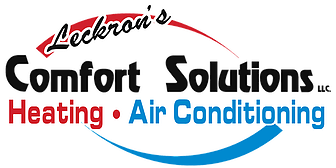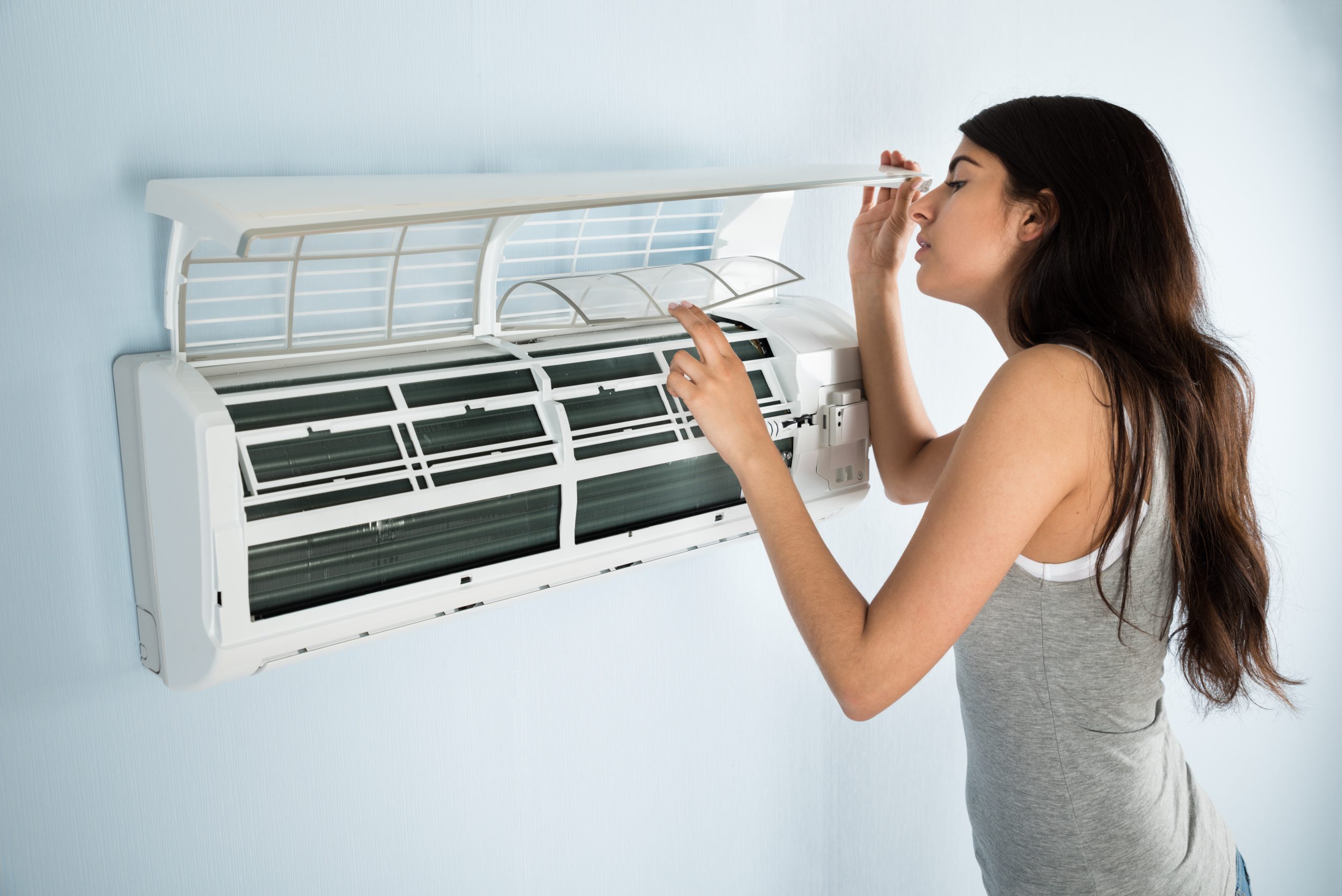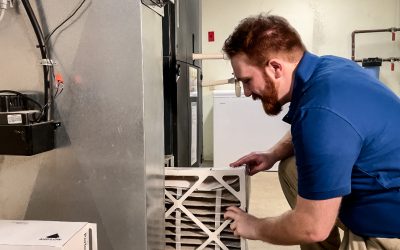One of the most basic tasks of a homeowner is to change the HVAC filter. Yet, this seemingly straightforward chore can become burdened with nuances. What kind of filter? Reusable or disposable? Fiberglass or pleated? MERV, FPR, or MPR? It can all be overwhelming.
Air filters have an important role in the HVAC system. Proper fitting filters scrub your air of allergens, pollutants, dirt, and dander. Because your system is not struggling to push air through clogged filters, it has less strain, resulting in fewer breakdowns, longer lifespan, and decreased energy bills.
Instead of going mindlessly to Home Depot to pick out a filter, take some time to learn about the various filter options, ratings, and benefits of air filters. Being informed allows you to make the most economical and healthy choice for your family and home.
Types of HVAC Filters
From price point to longevity and effectiveness, there are various filter options. To prevent becoming overwhelmed, simply learn about the possibilities.
Disposable fiberglass filters
Fiberglass filters, often the least expensive option, come in various sizes but have a low filter rating and last about 30 days. While effectively capturing dust and lint, they struggle to filter pollen, bacteria, and viruses. If anyone has asthma or pets in the home, these filters will be less effective in meeting the home’s filtering needs.
To mitigate the chance of the woven glass fibers infiltrating ductwork, adhesive is applied to the filter. As long as you change your filters monthly, you will not experience decreased airflow issues.
Pleated filters
The most popular option of a filter is the pleated filter. The beauty of this filter is that it can catch an incredibly tiny size: 0.3 microns. This effectiveness means even teeny-tiny bacteria, dust mites, and pollen are no match for the filter’s trapping ability.
Be wary: if you use a lot of candles, sprays, incense, or colognes, you can overwhelm the filter. These pollutants are called VOCs – volatile organic contaminants – and can quickly clog your filter and prevent effective filtering. However, when changed at proper intervals, a pleated filter catches up to 99.97% of airborne particles.
Beyond the ability to filter tiny particles, some homeowners have another reason for choosing a pleated filter over a fiberglass option: they can last almost three times longer than their fiberglass counterparts. So, while they may initially be more expensive, considering the difference in duration and filtering ability, many homeowners opt for the pleated filters.
High-efficiency particulate air (HEPA) filters
While .03 microns is very effective with a pleated filter, HEPA filters can go even further. They filter down to .1 microns, which can catch viruses, bacteria, and larger particles like dust, dander, and mold. HEPA filters can remove 99.97-99.99% of all airborne particles.
HEPA filter fibers are arranged in a random pattern to form a mat. The filter uses diffusion, interception, and impaction to capture allergens, viruses, gases, and bacteria.
- Diffusion: particles under .1 microns collide with each other and delay passing through the filter
- Interception: particles stick to the fiber
- Impaction: particles embedded into the filter
Washable/reusable filters
While these filters are great from an economical and environmental standpoint, they do not filter small particles. Washable filters usually capture particles larger than 10 microns. The irritants of this size are generally pollen, dust mites, and lint.
Electrostatic furnace filters usually run about $100. Although this seems high, you are only purchasing this filter one time for the life of your HVAC system. You will need to clean the filters, so although there is upkeep, it should save you money in the long term.
Cleaning the filters is as simple as spraying them off in the yard with a garden hose. A household cleanser removes grease or smoke.
Electronic air filters
Electronic air filters further improve the air in your home. They are installed directly into your ductwork by HVAC technicians. Large plates utilize opposite electrical charges to charge pollen, dust, and other pollutants, making them magnetically attracted to the plates. When fully covered with collected contaminants, they obviously will not filter as well, but luckily, cleaning them is burdenless.
To clean electronic air filters, wash them in a sink or pop them in the dishwasher. The more recent models of electronic air filters have a light indicating it is time to clean the filter. When washed off, replace the filter, and it’s ready!
UV filters and their purpose
Ultraviolet light can clean air. HVAC systems utilize UV light to sterilize almost 100% of germs, viruses, mold spores, mildew, fungi, bacteria, and microorganisms. The UV light system helps prevent mold and mildew inside your ductwork – something an air filter or purifier cannot do.
Running anywhere from $200 to $1000 for lights and installation, UV lamps increase how well your HVAC system works. The high frequency of UV light destroys the DNA of bacteria and microorganisms. In turn, your air is left sanitized.
Filter Ratings
Just as there are a variety of filters to choose from, each filter comes with a rating scale. Depending on where the filter is manufactured, sold, or produced – the rating is either a MERV, MPR, or FPR rating. Which filter you choose is a personal preference, as all the filter rating types can be used in most furnaces. Your HVAC system’s manufacturing guide will recommend filter sizes and rating range.
Most homes select a filter with a MERV rating between 6-13, depending mainly on the environment of their homes. Those with a lot of traffic, pets, or family members with allergies and asthma may opt for a higher rating. Single-family or two-person households with no pets and very little activity or time in the home won’t need such a high filter, and may prefer the lower ratings.
MERV
The MERV rating stands for Minimum Efficiency Reporting Value. The American Society of Heating, Refrigerating, and Air Conditioning Engineers developed this rating system. The higher the MERV rating, the more pollutants and particles a filter can capture.
The rating system is in a range between 1 and 20. Most residential homes use filters between 6 and 13. Filters with a value higher than 13 are usually reserved for commercial settings.
Although the higher rating yields air cleansed of more particles, it also taxes your system, as your HVAC system must push air harder to move air through the denser fibers. Therefore, the MERV rating is a balance between the filter and your needs.
MPR
The Microparticle Performance Rating was created by 3M and bases its rating on the size of the pollutant size it filters. The filter rating range is from 300-2800, with the higher rating indicating more pollutants are filtered through. All filters can at least capture contaminants of 1 micron.
A MPR 300 is comparable to a MPR 6 – these filters can trap most dust, lint, and pollen. In comparison, a MERV 13 is equivalent to a MPR 1500-1900, filtering dust, lint, pollen, and particles as small as those found in bacteria and viruses.
FPR
Developed by Home Depot, the Filter Performance Rating was specifically designed for their brands of filters, such as Honeywell. Their rating system runs from 4 to 10.
At the low end, a 4 filters dust, pollen, and pet dander and is compared to a MPR of 600 and MERV of 8. As the ratings move up, they filter more. A rating of 10 indicates smoke, mold, bacteria, and some viruses are filtered and would be a similar filter to a MPR rating in the 1900-2800 range and a MERV rating of 13.
Benefits of Using Quality Filters
It is tempting to buy the cheapest level of filter for your home, but in the long run, this may not be the most advantageous. Instead, comparing the filter rating, your home’s needs, the lifespan of a filter, and the manufacturer’s recommendation proves a better way of choosing what filter your home requires. Selecting a higher-quality filter brings a variety of benefits to the home.
Improved indoor air quality
The most obvious benefit of a high-quality air filter is the improved air conditions. HVAC systems have a responsibility in not just moving air but cleaning it. Improved air quality is possible by matching your home’s needs to the filter you choose.
When a filter clogs sooner than expected, it isn’t just the additional pressure on your HVAC system that should concern you. The filter is also trapping moisture, creating a breeding ground for mold, bacteria, and mildew. As the air pushes through, you risk spreading these pollutants throughout your home.
Choosing air filters that fit the needs of your home and are of high enough rating that they can perform the necessary tasks means that you mitigate these risks and protect your indoor air quality.
Allergen and pollutant removal
A filter removes allergens and pollutants. The level of contaminants in your home is based on your habits and those who may have lived there before you. If they did considerable renovation, lived a busy life, or had pets – your air ducts may have a build-up of contaminants.
As these irritants circulate through your home, poor-quality filters let them slip past the fibers and settle back into your ducts – impacting your family’s health. High-quality filters changed regularly capture these pollutants versus allowing them to continue to wreak havoc on your home.
Extended HVAC system lifespan and cost savings
As with any mechanical component, the more strain you put on a system, the quicker it will wear out. Running your HVAC system on a poor-quality filter or one incapable of managing your home’s needs equates to your HVAC unit overworking. The result is a need to replace your system or its parts sooner than expected. Long before your system tuckers out, you will see the increased energy usage in your monthly utility bills.
Proper Filter Sizing and Installation
For your HVAC system to properly clean your air of pollutants, the filter size must be correct and installed properly.
Importance of the right filter size
When you walk into Lowes, you may see a special on filters. Before you stock up on a year’s worth, it is wise to ensure the filter size is correct.
Filters control the pollutants in your home, essentially trapping them before recirculating the air. If the filter is too small, the gaps around the filter allow the dust, dander, and pollen to push past the filter and enter your rooms. To make matters worse, the debris that slips past the filter has the potential to end up inside your HVAC unit – clogging it and causing potential breakdown.
A filter that is too large won’t fit into the filter slot. If you try to cut the filter to fit, you compromise the structural integrity. Your filter could collapse or not work as it should. It is best to swap it for the correct size filter.
Step-by-step guide to replacing HVAC filters
Changing an air filter is a relatively simple operation. Start with the correct size filter and the proper rating for your home and HVAC system’s needs.
Then, kill your power supply. You won’t want your unit to cycle on when your filter is out. Look for the filter slot. If you have trouble locating your filter, look for the area with a slotted, rectangular cover. It is often closed with a set of screws.
Open the cover, remove the filter, and examine it. Are there arrows on the filter indicating the direction of the filter? Take note of them. Then, remove the old filter and place it into a trash bag. It helps to do this immediately so the dander does not fall off and spread throughout your home as you carry the filter outside.
Insert the new filter, making sure the arrows point in the same direction as the original filter. Replace the cover, tightening the screws, and turn your unit back on.
Common mistakes to avoid during installation
When installing your filters, watch out for these common mistakes:
- Selecting the wrong size
- Ignoring the filter rating (MERV, MPR, FPR)
- Installing upside-down or sideways
- Not pushing the filter all the way inside the slot
- Not replacing often enough
Filter Replacement Frequency
In general, we recommend changing your furnace filter at least every three months, but if you have individuals living with asthma, allergies, or pets, consider a monthly cycle. Some higher-end filters last up to six months, but this is highly dependent on your lifestyle. If your filter is filthy when you replace it, you need to change it more often.
Factors affecting filter replacement intervals
Filter type: high-end filters with little home use will last longer… some even up to six months! Cheaper filters with lower ratings likely require monthly changing. In terms of disposable air filters, pleated air filters last longer than fiberglass: 90 days versus 30 days.
Home Size: reasonably, larger homes circulate more air, so the logic follows that they would need the filters changed more often. If your HVAC system is not sized appropriately for your home, the filter may need to be changed more than a home the same size.
Air Quality: cleaner air puts less use on the filter, so the lower the air quality of the home, the more often the filter needs to be changed. For example, if you have an indoor smoker, your filter will clog quicker than if you don’t. Pollution levels in your area affect the air entering your home, as does opening windows, wildfires, candle burning, pets, and illness.
Seasons: certain seasons naturally put more pollen into the air. When the seasons are mild, you may kick open your windows. While you won’t be using your air filter at that exact time, when you turn your HVAC system back on, the pollutants now floating in your air will be filtered, causing your air filter’s lifespan to reach its end quicker.
Allergies: while the air may be perfect for most, individuals susceptible to allergies or who have asthma need to change their filters sooner rather than later.
Activity Level: the more you go in and out of your home, the more often you bring in pollutants from the outside world. Pollen, dirt, and dust track in with the doors opening and closing and are also carried in on the bottom of your shoes and clothing.
Pets: our furry family brings us immense joy, but they also bring us dander. The more pets we have, the more dander accumulates, clogging up filters. Keep air quality clean by simply changing your filter more often.
Children: our kids not only increase the activity of our home, but they are also more sensitive to indoor air pollution. What may not bother us can cause the younger members a fit of sneezing, watery eyes, and coughing.
How often to check and replace filters
Three months is a good starting recommendation. The exact time frame depends on the factors above.
As a trick, hold your filter up to the light. Does light pass through? If so, it still has filtering capability. If not, it needs to be changed. Visually, does it look filthy? If so, switch it out.
Pro-tip: set up a filter delivery cycle. When the filter comes, swap your filters.
DIY vs. Professional Maintenance
In general, most of the time, filter replacement is a task for homeowners. Now and then, a professional may need called. If your furnace fan won’t turn back on, you hear strange noises or smells, or you see moisture with no explanation as to why – call Leckron’s for a diagnostic evaluation.
Maintenance plans help you stay on top of these issues, so if there were deeper problems, they would already be addressed. Our goal at Leckron’s is your family’s safety and comfort, so if any odd issues arise when changing your filter, we are here to help – maintenance plan or not!
You Deserve Clean Air
Clean air isn’t a luxury afforded only to commercial buildings and those with perfect housekeeping skills. Everyone deserves the chance to breathe air free of pollutants, allergens, dust, and dander.
When you work with an HVAC company you trust, you can lean on their advice and suggestions for your home – whether that is a system repair or merely to change your filter more often. Whatever the case, you need to know you can trust the advice of the professionals.
“Called them for a quote; they came out in a timely manner. The owner walked with me and we figured out how to run a central heat and air system in my new house(others did not take the time). They had the price by the end of the day. They came and installed everything in a timely manner and were very professional the whole time. I would recommend them to anyone wanting a professional job done. Great job!!” – Javan M, Customer
If you need more than a simple filter change, Leckron’s is here for you. We believe in partnering with Pennsylvanian families to create an atmosphere built on trust and reliability. Contact us for your home’s HVAC needs.




